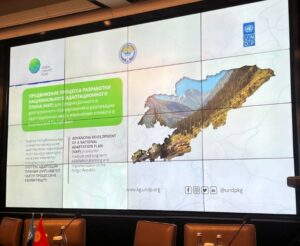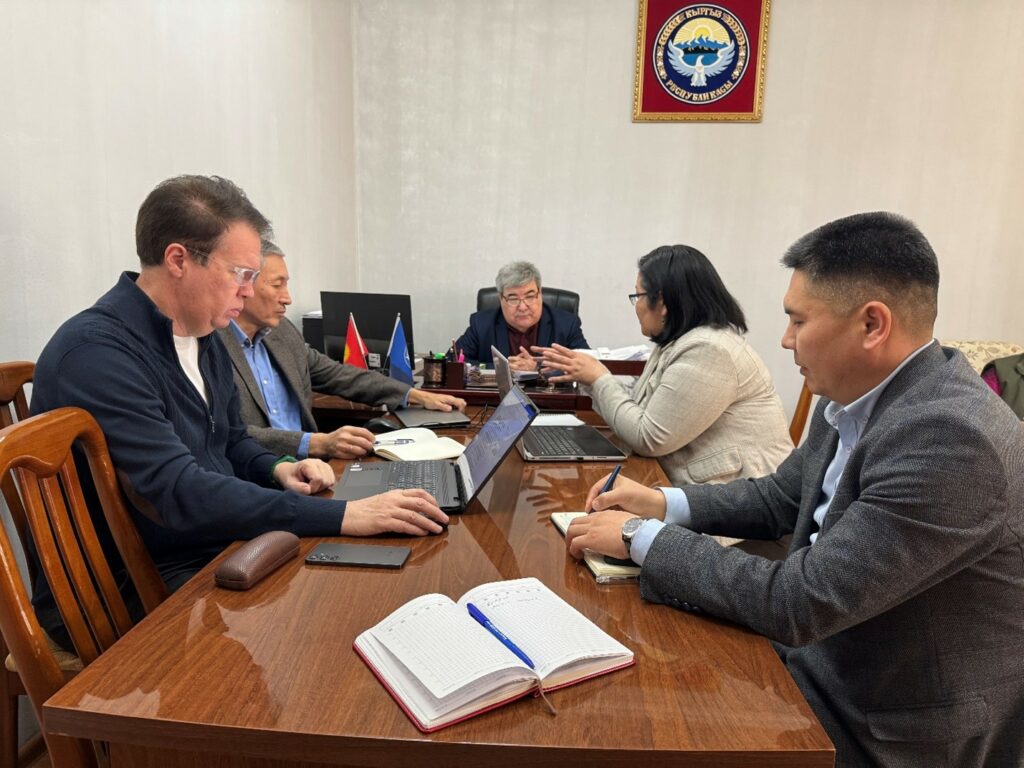Recently, within the walls of the HYATT Regency hotel, a discussion was held on the interim results of the process of developing a National Adaptation Plan (NAP) in the Kyrgyz Republic.” This event is held by the Ministry of Natural Resources, Ecology and Technical Supervision of the Kyrgyz Republic with the support of UNDP in the Kyrgyz Republic. in the discussion of the preliminary results of the development of national NAPs participated representatives of the Parliament of the Kyrgyz Republic (deputies Ashimova D.A. and Talieva K.A.), Turgunaliev M.Zh. – Minister of Natural Resources, Environment and Technical Supervision of the Kyrgyz Republic, Monica Rizal – Deputy Resident Representative of UNDP in the Kyrgyz Republic, representatives of other ministries and departments, regional and national non-governmental organizations and representatives of development partners from GIZ, JICA, WFP, FAO, etc.

This discussion was within the framework of the UNDP-GCF “Advancing development of a National Adaptation Plan (NAP) process for medium and long-term adaptation planning and implementation in the Kyrgyz Republic” project aims to support the Cabinet of Ministers of the Kyrgyz Republic in the creation and implementation of the climate change adaptation planning process.
CAREC was represented by the Director of the CAREC Country Office in the Kyrgyz Republic, Matraimov Kuban, who informed about the Central Asia Conference on Climate Change, which took place on May 27-29, where the experience of Central Asian countries that are developing NAPs for key sectors of each country was also discussed.
At the beginning of the discussion, the deputy of the Ministry of Natural Resources, Ecology and Technical Supervision, Raimkulova Asel, informed all participants about the state policy on climate change, which is being pursued by the Kyrgyz Republic and by the end of 2024 the process of developing adaptation sectoral plans for healthcare, biodiversity conservation, agriculture & irrigation, emergencies,
The project extensively analyzed climate, sectoral, and socio-economic data across agriculture, emergencies, biodiversity conservation, and health sectors. It bolstered the capacity of sectoral ministries and provincial departments, conducted vulnerability assessments, and formulated adaptation options. Four sector-specific adaptation plans were crafted alongside an adaptation action plans for the further integration into development plans of Osh, Batken, and Jalal-Abad provinces. Furthermore, support was extended to the National Statistical Committee KR (NSC KR) and Hydrometeorological Service under MES KR to enhance the climate change statistics system. Additionally, a guidance was collaboratively developed involving all stakeholders to integrate gender perspectives into climate change adaptation processes.

By Kuban Matraimov, the Director of the CAREC Country Office in the Kyrgyz Republic



